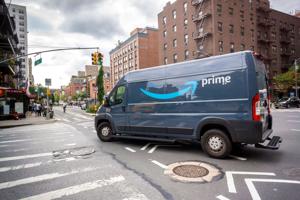Researchers at New York school find delivery services get a temporary boost from COVID-19

(The Center Square) – Researchers at an upstate New York university say many who now use online delivery for such items as groceries and home goods are just taking advantage of those services due to COVID-19.
The study from the Rensselaer Polytechnic Institute found more than 90% of people who utilize delivery services will switch back to their old ways once the pandemic ends.
Cara Wang, an associate professor at the Troy school’s Department of Civil and Environmental Engineering, said the research shows many did not make the jump to services like Instacart and Grubhub out of simple convenience. Instead, “an external disruption” made them change behaviors.
COVID-19 “significantly altered the playing field,” she said. “Once this external effect is removed, some of the gains made by the delivery services will likely fall off.”
The research will help logistics professionals, transportation planners and policymakers get a true picture of the future demand for delivery services and the infrastructure that would be needed to support them.
“Transportation professionals and researchers have assumed that people would still rely on delivery services even after the COVID crisis is over,” said José Holguín-Veras, director of the Center for Infrastructure, Transportation and the Environment at RPI. “However, in reality, consumers’ technology acceptance is much more dynamic and complex during a pandemic than during normal conditions. Understanding these nuanced behaviors is essential for sound transportation policymaking.”
Through the research, Wang was able to identify four groups of people: non-users, prior adopters, temporary users and new permanent customers. She also broke down delivery services into four categories: groceries, food, home goods and other items.
The RPI study finds more people have switched to home grocery delivery than for other needs. However, while that market more than doubled since the pandemic began, it found more than half of the new users will not continue with the service once the pandemic ends.
The study also determined the pandemic has had a greater impact on people buying less essential products.
Besides Wang and Holguín-Veras, Woojung Kim and Joshua Schmidt, two RPI civil and environmental engineering doctoral students, co-authored the report.
Disclaimer: This content is distributed by The Center Square

